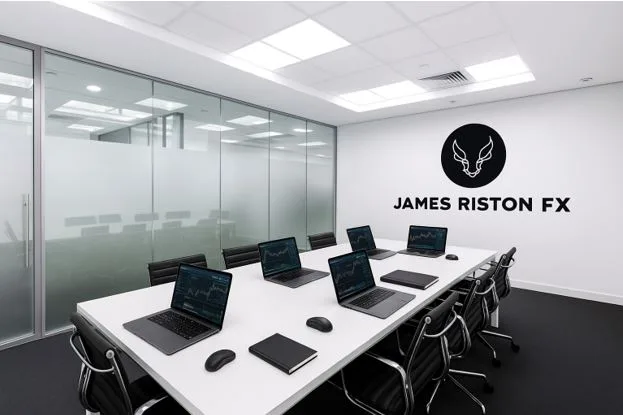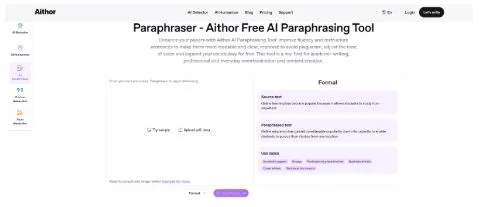Finding the Right Employment Law Firm in Los Angeles: Your Essential Guide
Securing the right employment law firm in Los Angeles is often the first, and most important, step in addressing workplace disputes. Whether you’re confronting an unjust termination, workplace bias, or a disagreement about pay, having skilled legal counsel by your side can make all the difference. This process shouldn’t feel overwhelming. Instead, think of this as a focused mission to find the perfect advocate for your specific situation.
What to Look For: Sizing Up Your Legal Needs
When Is It Time to Call an Attorney?
Figuring out if your workplace issue warrants legal help can be tricky. Maybe you feel a sense of unfairness, but how do you know when a situation has moved beyond a simple workplace misunderstanding? If you’re dealing with behavior that feels retaliatory or discriminatory, or if you’ve received a termination notice without a solid, clear justification, the situation has probably escalated. Similarly, unresolved issues like ongoing sexual harassment or persistent discrepancies in your paycheck can seriously impact your livelihood and peace of mind.
These scenarios carry substantial weight, potentially affecting your financial security and emotional well-being. Before acting impulsively, pause and collect your thoughts. A qualified employment lawyer can clarify your legal standing, educate you on your rights, and help you determine the best path forward be it negotiating a settlement, participating in mediation, or taking the case to court.
The Power of Specialization
The field of employment law isn’t a single umbrella; it’s a collection of unique, specialized practices. It’s wise to recognize that different areas like workplace discrimination, employment contracts, or wage and hour laws each require distinct knowledge.
A firm that focuses on one or two of these areas often provides more focused representation than one that claims to handle everything. For example, if you are fighting a wrongful termination case in California, you’ll want an attorney who knows California’s specific labor statutes inside and out, as state laws can vary widely. Some firms even concentrate on specific industries, such as tech, health care, or hospitality, meaning their legal advice is tailored to that sector’s particular challenges. Partnering with a specialized firm means you benefit from concentrated experience, which can greatly strengthen your case.
Weighing Firm Size: Big Team vs. Personalized Care
The size of an employment law firm in Los Angeles impacts the resources they can dedicate to your case, but also the level of personal attention you receive.
- Larger firms typically have deep benches: more attorneys, extensive support staff, and greater financial capacity for large-scale litigation. This can be beneficial for very complex, high-stakes cases. However, in a big firm structure, it’s possible for your case to feel impersonal, like one file among many.
- Smaller firms generally offer a more personalized, hands-on client approach. Because they manage fewer cases, you might have more direct, frequent communication with your dedicated attorney, fostering a closer relationship.
When evaluating firms, ask about their typical caseload and how they manage client communication. The goal is to find a balance between having sufficient resources and receiving truly engaged representation.
Sourcing Top-Tier Legal Counsel
Start with Personal Recommendations
One of the most dependable ways to find a highly capable firm is through personal referrals. Talk to friends, family, or colleagues who have navigated workplace disputes. They can offer an honest assessment of an attorney’s work, their communication style, and the eventual outcome of their case. A personal recommendation gives you context you won’t find on a website. While referrals are an excellent starting point, always conduct your own research to confirm the firm is the right match for your specific legal needs.
Scrutinizing Online Feedback
Online reviews are a valuable tool for getting a broad sense of a firm’s reputation. Websites like Google, Avvo, and Yelp allow former clients to rate firms on qualities like professionalism, responsiveness, and service quality. Look for a large volume of consistently positive ratings; this usually signals a firm committed to high-quality service. Be sure to read beyond just the star rating—look at what clients say about case results and the clarity of attorney-client discussions. Strong online feedback suggests that the firm is accountable and transparent in its practice.
Connecting Through Professional Groups
Professional organizations can significantly narrow your search. Groups such as the California Employment Lawyers Association (CELA) or the American Bar Association maintain directories of qualified, specialized attorneys. Membership in these associations often indicates
that a firm adheres to high ethical standards and participates in ongoing training. Many of these groups also offer referral services designed to match you with a lawyer suited to your particular circumstances, helping you connect with qualified legal advocates.
Before You Hire: Key Questions to Ask
How Does Their Case Experience Match Yours?
During an initial consultation, be direct about their track record. Ask for specifics: What types of employment cases do they handle most often, and what were the outcomes? An attorney who has successfully handled cases identical to yours especially within your industry can provide meaningful insight into the likely difficulties and the successful methods they’ll use. Don’t hesitate to ask for examples of how they’ve resolved issues for other clients. This discussion reveals their experience, strategic thinking, and dedication to achieving a just result.
Gauging Communication Style
A good attorney-client relationship hinges on clear, effective communication. Observe how well the lawyer listens to your story and answers your questions. Do they simplify complex legal ideas without sounding condescending? Transparent explanations are crucial for building trust.
Also, lay out expectations for how you’ll stay in touch. Ask about their typical response time for emails or phone calls and how often you can expect progress updates. Understanding their communication rhythm helps ensure you won’t feel neglected or overwhelmed as your case progresses.
Understanding the Cost
Before you commit, get absolute clarity on the firm’s fee structure. Employment lawyers might use hourly rates, flat fees, or contingency fees. A contingency fee means the attorney only gets paid a percentage of the final settlement or judgment if the case is successful. Discussing these arrangements upfront ensures financial transparency and allows you to budget correctly. Remember to also ask about potential extra costs, such as filing fees or the expense of expert witness testimony. Knowing the full financial picture allows you to make a sound decision about your legal action.
Making the Initial Consultation Count
Preparation is Everything
To maximize your consultation time, arrive ready with all relevant documents. This means gathering your employment contract, any performance reviews, correspondence with HR, any applicable medical records, and other materials that clearly illustrate your situation. Providing these records allows the attorney to grasp your case immediately and offer accurate advice. Also, write down any questions or major concerns ahead of time so you can address them systematically. This preparation ensures the meeting is productive and helps you make a well-informed choice.
Assessing Their Legal Acumen
During the consultation, you will have the opportunity to assess the attorney’s knowledge of employment law firsthand. Pay close attention to how they discuss the intricacies of your case. A truly knowledgeable lawyer will not just recite legal concepts; they will connect those principles directly to the specifics of your situation and offer tailored options. Watch their demeanor: Do they seem genuinely invested in your case? Do they present confidence without arrogance? These observations are strong indicators of their skill and ability to work with you. Ask about past strategies they used in similar cases, which can give you a clear look at their effectiveness as a potential advocate.
Trusting Your Gut
The right attorney is more than just a qualified person; it’s a good personal fit. As you talk, listen to your instincts. A positive lawyer-client bond is built on trust, respect, and empathy. Does the attorney seem to prioritize your concerns and show a compassionate understanding of the difficulties you face? Are they candid in their assessment of your case while still providing encouragement? A lawyer who is willing to clearly explain the process and who engages with you in a manner that inspires trust can have a dramatic, positive effect on the outcome of your representation. Evaluating both their professional ability and your personal rapport is paramount.





